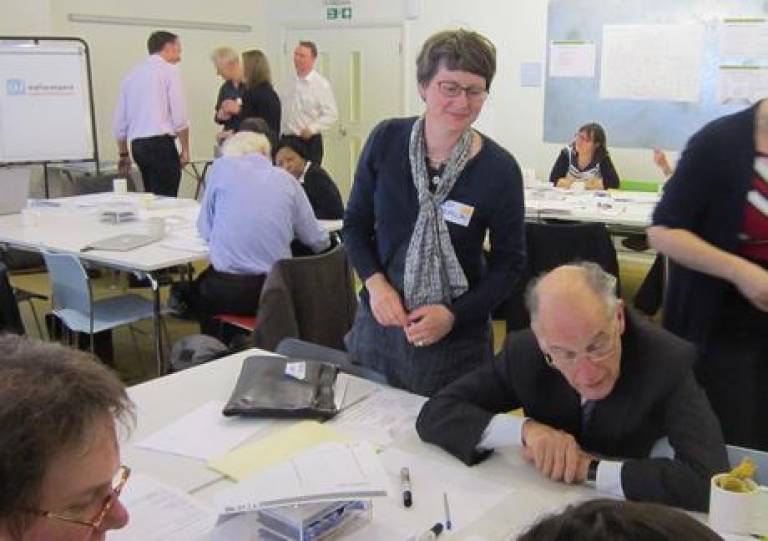Third stakeholder workshop on ‘Integrated decision-making about Housing, Energy and Wellbeing (HEW)’
22 January 2015

On 13 November 2014, the BSEER’s Complex Built Environment Systems (CBES) Group held its third workshop on housing, energy and well-being. It was attended by ~40 stakeholders from different sectors including central and local government departments involved in policy decision-making, industry, non-government organisations (NGOs), community groups and academia. Achieving policies that improve positive outcomes for health, equity and sustainability while emphasising co-benefits and minimising trade-offs, requires a different decision-making processes, as well as methods that successfully support these processes. Therefore, a participatory and interdisciplinary process has been applied throughout the project and at the third workshop. The ambition of CBES’s project on ‘Integrated decision-making about housing, energy and wellbeing (HEW)’ is to increase understanding for all stakeholders of the system connections between energy efficiency and wellbeing in housing and to explore methods of change. This day was the start of the second phase in the development of the project and was divided into three areas:
- A discussion about the broader context in which housing is situated and the influence of this broader context in our thinking about change
- The use of systems methods and tools to explore and test specific policies in this field
- An open discussion about issues that stakeholders think are important and could be addressed by these research methods and tools
Discussions with stakeholders about the causes of the low Green Deal uptake revealed a strong overlap with findings from a modelling process: that the inclusion of users’ attitudes and behaviour, the interaction of policies and an awareness of paradigmatic thinking should be taken into account in policy design. However, through the ensuing discussion with stakeholder it became even clearer how important it is for them that methods and reasoning in decision-making tools are transparent and can be understood and challenged.
We use the stakeholder material to define the most pressing issues that affect a range of goal criteria and establish a process for mutual insight of problem articulation, result implementation and mental model change.
 Close
Close

